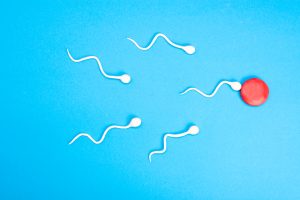Time-restricted fasting is an eating pattern in which people limit their food intake to certain hours of the day. This diet has become a popular trend to lose weight and improve overall well-being. In addition, brain function and heart heart can also benefit.
But a new study shows that time-restricted eating affects reproduction differently in male and female zebrafish. Importantly, some of the negative effects on egg and sperm quality become apparent after the fish have returned to their normal feeding levels. The research team explains that while the study was conducted on fish, their findings highlight the importance of considering not only the effects of fasting on weight and overall health, but also on fertility.
How Time-Restricted Eating Affects Fertility
While fasting offers some health benefits, the way organisms respond to food shortages can affect egg and sperm quality, and such effects could potentially persist after fasting ends. The researchers wanted to find out more about how this type of diet can affect fertility in a popular model organism. The research team studied zebrafish (Danio rerio) to find out what happens when people are exposed to food during and after a fasting period.
They measured how males and females allocate resources for body maintenance versus the production and maintenance of sperm and eggs and the quality of the resulting offspring. Dr. Edward Ivimey-Cook of the School of Biological Sciences explains that time-restricted eating affects reproduction differently in males and females. Once the fish returned to their normal feeding schedule, the females increased the number of their offspring at the expense of the quality of their oocytes, resulting in decreased offspring quality. The quality of male sperm also decreased. More research is needed to understand how long it takes for sperm and egg quality to return to normal after fasting. The study was conducted by the University of East Anglia in collaboration with researchers from the Center for Environmental, Fisheries and Aquaculture Science (Cefas).
Intermittent Fasting can Lower Hormone Levels and Suppress Ovulation
If food intake is severely restricted over a long period of time and there is severe weight loss, this can affect the menstrual cycle. However, a regular cycle is important to increase the chances of pregnancy. It is important that enough calories are consumed and that there is sufficient body fat. However, fasting heavily can signal to the body that it is in danger. As a result, it conserves energy by lowering levels of progesterone and estrogen in the brain. This can lead to periods being irregular or not occurring at all, and ovulation no longer takes place. Studies of female athletes who follow strict diets suggest that the monthly cycle becomes unbalanced and fertility decreases. This effect can also be seen when engaging in intermittent fasting, in which mealtimes are restricted, especially when this diet is followed over a long period of time.
Previous research has shown that intermittent fasting can have a negative impact on fertility. For example, in female rats, intermittent fasting suppressed reproductive hormones and cycles, and even slightly reduced the size of their ovaries. A disturbed estrus cycle (comparable to the menstrual cycle in women) could also be determined. The results also showed that the time-restricted food intake significantly increased serum estradiol in female rats and decreased testosterone levels in male rats, while it was found that the serum LH concentration in animals of both sexes decreased drastically during fasting. The data suggest that intermittent fasting negatively affects reproduction in young adult rats by disrupting the oestrous cycle in female rats and altering serum concentrations of estradiol, testosterone and LH in both males and females.
Could Women With PCOS Benefit?
On the other hand, some studies show that intermittent fasting could be helpful for women with PCOS as it can improve insulin resistance and weight loss. This can help your period to become more regular as well as your ovulation. The basic rule is: Everything with measure and goal. Excessive eating is just as counterproductive for fertility as severe food restriction over a long period of time. It is best to talk to your doctor, who can help you to work out an ideal nutrition plan that takes both your health situation into account and also supports you in achieving your personal (weight) goals.





